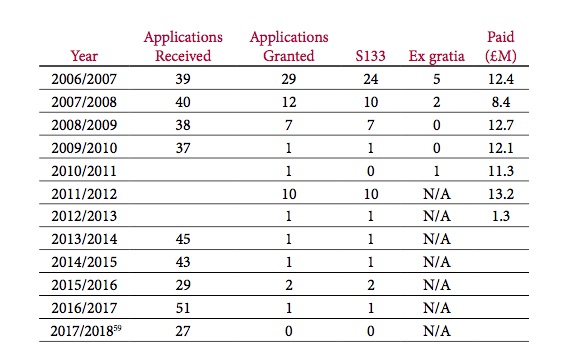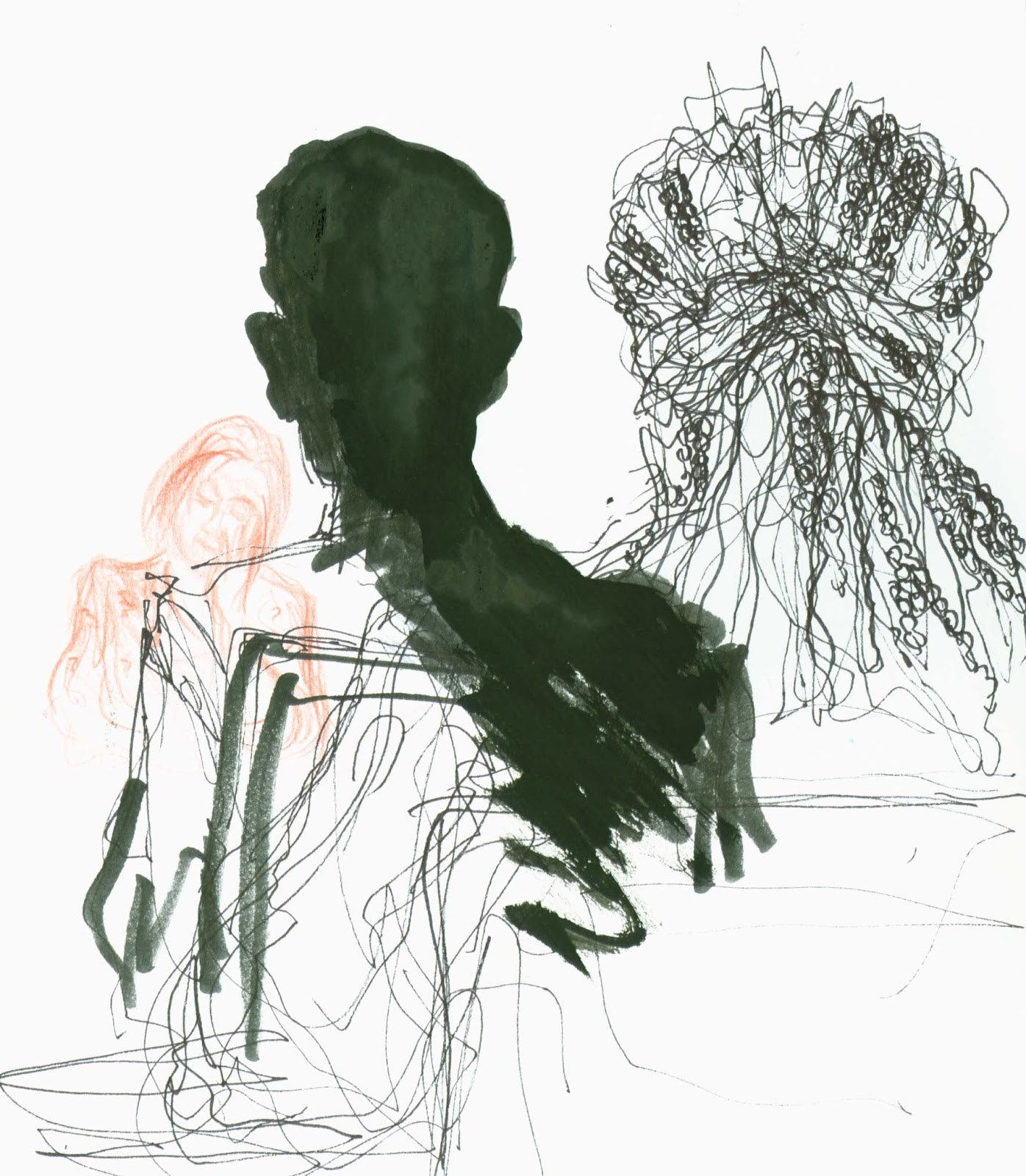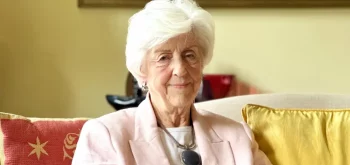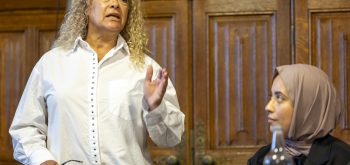Half of all victims of miscarriages of justice were homeless within six months of their convictions being overturned, MPs heard last week. The all-party parliamentary group on miscarriages of justice heard new research into the lack of support for the wrongfully convicted post-release.
The quashing of a conviction by the Court of Appeal was ‘clearly not enough to address the harms that are caused by wrongful conviction,’ Dr Laura Tilt, the author of the new research, told the committee, ‘Recognising that a wrong conviction is not just about the conviction or a prison sentence, but rather a destruction of a person’s identity and their life, is at the core of ensuring that post-exoneration assistance is most effective.’
The academic was joined by Amanda Jenkinson, who was wrongfully convicted in 1996 of causing GBH with intent to a patient whilst working as a nurse. She served almost five years in prison as a result.
Jenkinson described how she ‘was once a competent intensive care nurse’, but was ‘now a statistic – as a miscarriage of justice’. ‘I feel deep sadness, bewildered, grieving for my loss of life and career,’ she told the meeting. ‘I feel a stranger with my own family. They have always supported me 100%… . I naively thought once I’d been cleared, reinstated to the professional register life would resume to normal. It could never. I live a pointless existence, saddened by the impotence of the justice system.’
She went on to say she felt ‘tainted, lost, sad, empty having had everything I worked for, everything that I held precious, taken from me. I feel broken and alone. The flashbacks, the nightmares never stop,’ she said.
Dr Tilt, who undertook the research for her doctorate at the University of Oxford, pointed out that compensation for the wrongfully convicted in England and Wales had been ‘reduced almost to nil’ which had ‘severe consequences for the emotional, financial and resettlement impact of the wrongfully convicted.’
According to a JUSTICE report published last year (Supporting Exonerees), in the last five years only five people have received compensation from the Ministry of the Justice after having their convictions overturned (and not a single person last year). By contrast, between 1999 and 2004, there were 162 successful applications. Dr Tilt said victims of miscarriages who had their convictions quashed often felt as though ‘they haven’t been truly exonerated if they are rejected in receiving compensation.’
 The Supreme Court is currently looking at the issue of compensation in the test case of Hallam and Nealon – see here. Amanda Jenkinson reported that a claim for compensation left her with a £50,000 legal bill.
The Supreme Court is currently looking at the issue of compensation in the test case of Hallam and Nealon – see here. Amanda Jenkinson reported that a claim for compensation left her with a £50,000 legal bill.
Dr Tilt pointed out that some victims of wrongful conviction were financially vulnerable and unused to dealing with large sums of money before. She said there was ‘complete discretion’ to spend compensation which was ‘often provided in large lump sums, without mandatory financial assistance’.
Dr Tilt also said that the limited support that was available came with ‘a number of challenges’. The one service specifically tailored for the wrongfully convicted is the Miscarriages of Justice Support Service (MJSS) which Amanda Jenkinson called ‘a lifeline.’
The MJSS is constrained by a remit designed by the National Offender Management Service (NOMS) which, Dr Tilt explained, meant that ‘much is left to the client’s own devices.’ Alison Lamb, the chief exec of the Royal Courts of Justice Advice Bureau which runs the service, explained how it was ‘funded in a very tight way’ to deliver advice for housing, welfare benefits and debt. As a result the victims of wrongful conviction are not assisted, for example, in any sort of reskilling or rehabilitation nor were they helped (in Tilt’s words)_ ‘to manage the emotional impact directly.’ Lamb explained that the MJSS has hired someone who offers ‘a listening ear service’ and also ‘visits clients when they are first released.’ However they had been unable to recruit a mental health worker.
Stigmatised
Most wrongfully convicted people Dr Tilt interviewed were referred to mainstream mental health professionals rather than anyone with expertise in wrongful convictions. Alison Lamb reckoned that the number of psychiatrists with expertise in this area had fallen to ‘probably two’. ‘Many of the difficulties in supporting the wrongfully convicted post-exoneration stem from having to fit this specific population into a general framework that is not necessarily designed for their needs,’ Dr Tilt said. ‘In mainstream systems such as the mental health or housing or benefits systems, there is still misunderstanding and lack of knowledge of the impacts of wrongful conviction.’
‘The wrongfully convicted need to feel included in their post-release world, in their immediate community. They need to feel recognised and not tainted with the spoiled identity of an ex-offender.’
Dr Laura Tilt
There were also significant challenges in accessing welfare benefits. According to a study conducted by the London School of Economics in 2015, the lack of support available to victims [of miscarriages of justice] meant that they might not eligible for social housing. ‘Some fail a local connection test owing to their imprisonment, while others, in a particularly Kafkaesque twist, are even deemed to have caused their own homelessness,’ the LSE said . Both Dr Tilt and Lamb spoke about the need for victims of wrongful conviction to be, in Dr Tilt’s words, ‘recognised as a distinct group, separate to the ex-offender group’.
Amanda Jenkinson spoke about how she had been ‘discriminated against in employment, travel, healthcare and insurance’ and ‘stigmatised in society.’ Her case attracted what she called ‘intense’ and ‘vile’ ‘media harassment.’ ‘I rarely socialise, answer the telephone or door,’ she told the meeting. At one time I was too afraid to even speak or write my name. Any workmen coming to my home fills me with panic. Nothing is any different. No one remembered, “Jenkinson cleared”.’ She said she still hears, ‘what’s it like having a murderer living on the street?’ and described how ‘when I look into someone’s face any comfort is gained from their belief in me.’
‘







